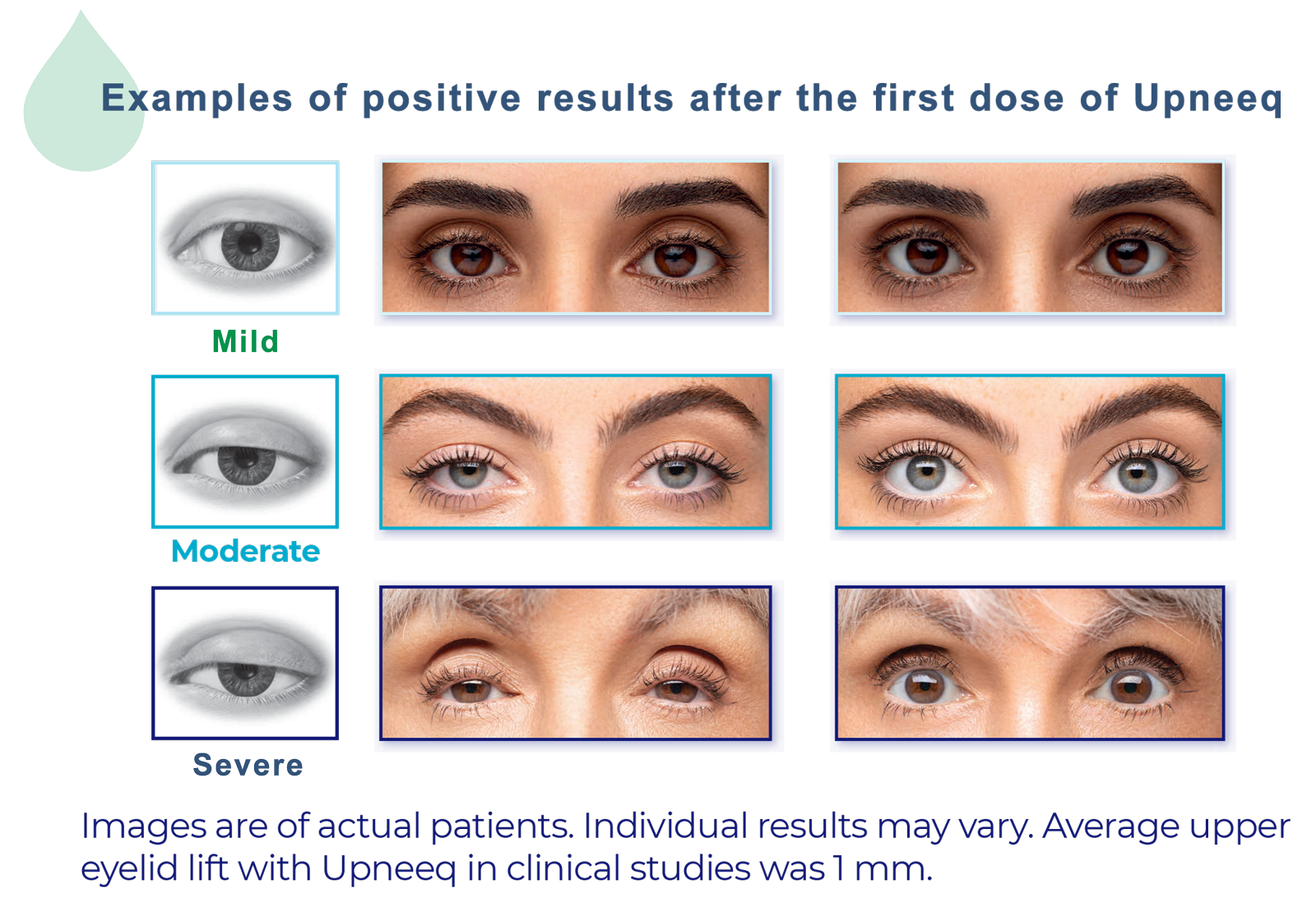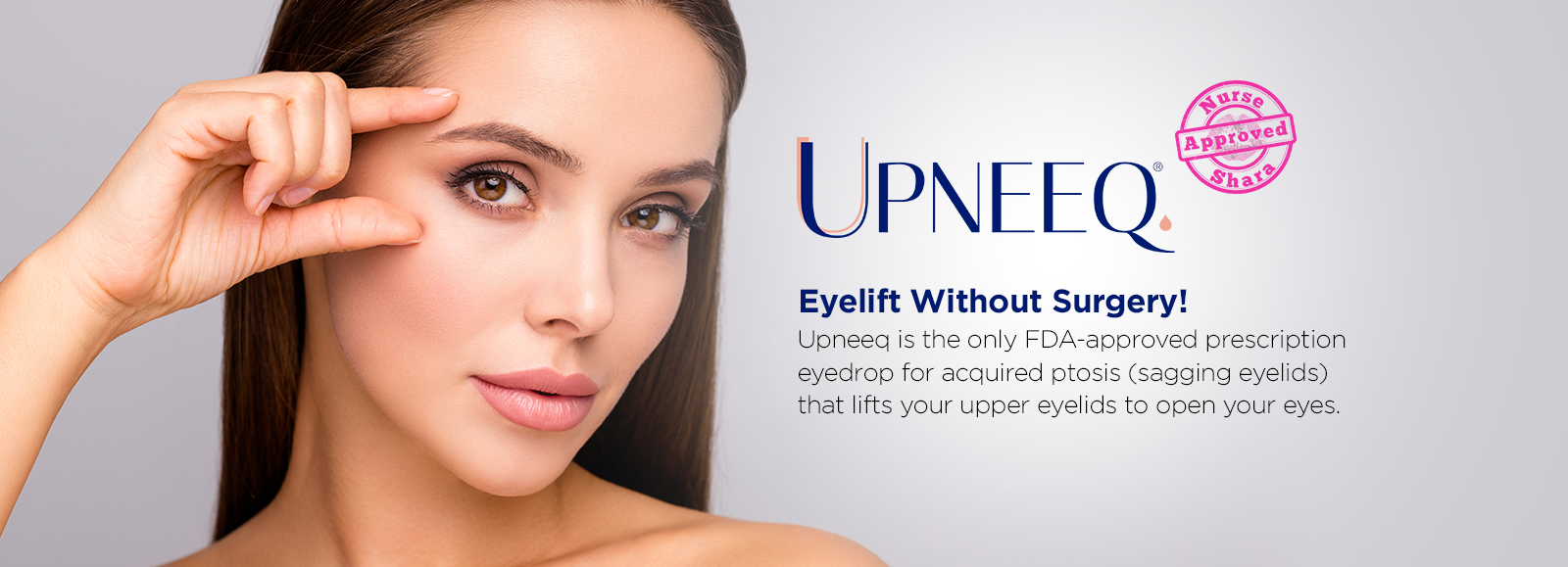Meet UPNEEQ® (oxymetazoline hydrochloride ophthalmic solution), 0.1%
A Ptosis Treatment without Surgery
Upneeq is the only FDA-approved once-daily prescription eyedrop for acquired ptosis (low-lying lids) that lifts your upper eyelids to open your eyes.
Examples of positive results after the first dose of Upneeq
Actual patient images courtesy of Dr. Robert Schwarcz and Dr. Raymond Douglas. Individual results may vary. The average lift seen in clinical trials was 1 mm.
WHAT IS UPNEEQ AND WHAT DOES IT TREAT?
Upneeq® (oxymetazoline hydrochloride ophthalmic solution), 0.1% is a prescription eye drop used to treat acquired ptosis in adults.
Acquired ptosis, also known as low-lying lids, is a common condition that occurs when the muscles in the eyelid stretch and weaken, causing the top eyelid to drop.
Acquired ptosis affects adults of all ages, but occurs more often with increased age. Acquired ptosis can also be a result of cataract surgery, contact lens wear, or an underlying medical condition. It’s not uncommon for patients to have acquired ptosis in only one eye or in one eye more than the other.
-
-
- In clinical trials, Upneeq was proven to be safe and effective when used as directed
- Common side effects (seen in 1-5% of patients) included eye inflammation, eye redness, dry eye, blurred vision, instillation site pain, eye irritation, and headache
-
IS UPNEEQ SAFE AND EFFECTIVE TO USE?
Yes, Upneeq is the only FDA-approved prescription eye drop for acquired ptosis (low-lying lids). Upneeq was proven to be safe and effective when used as directed in clinical trials.
WHAT ARE THE POTENTIAL SIDE EFFECTS OF UPNEEQ?
Common side effects (seen in 1–5% of patients) included eye inflammation, eye redness, dry eye, blurred vision, instillation site pain, eye irritation, and headache. For full safety information, see Important Safety Information.
HOW DO I USE UPNEEQ?
Apply Upneeq to your affected eye(s) in two easy steps:
-
Step 1: Cut open the foil wrapper and remove the single-use vial
-
Step 2: Instill one drop of Upneeq in each affected eye as directed, once a day
-
Close each eye for 60 seconds post-application for the best results
-
Do not let the tip of the vial touch your eye or any other surface. Vials should not be re-used after opening and should be thrown away after applying drop(s)
-
If you wear contact lenses, remove them before installing Upneeq eye drops. You may put them back in 15 minutes after administering Upneeq.
If more than one medication or eye drop is being used in the eye, they should be administered at least 15 minutes apart.
WHEN WILL I START SEEING RESULTS?
Patients see maximum results within 2 hours, but results may be seen as soon as 5–15 minutes.


